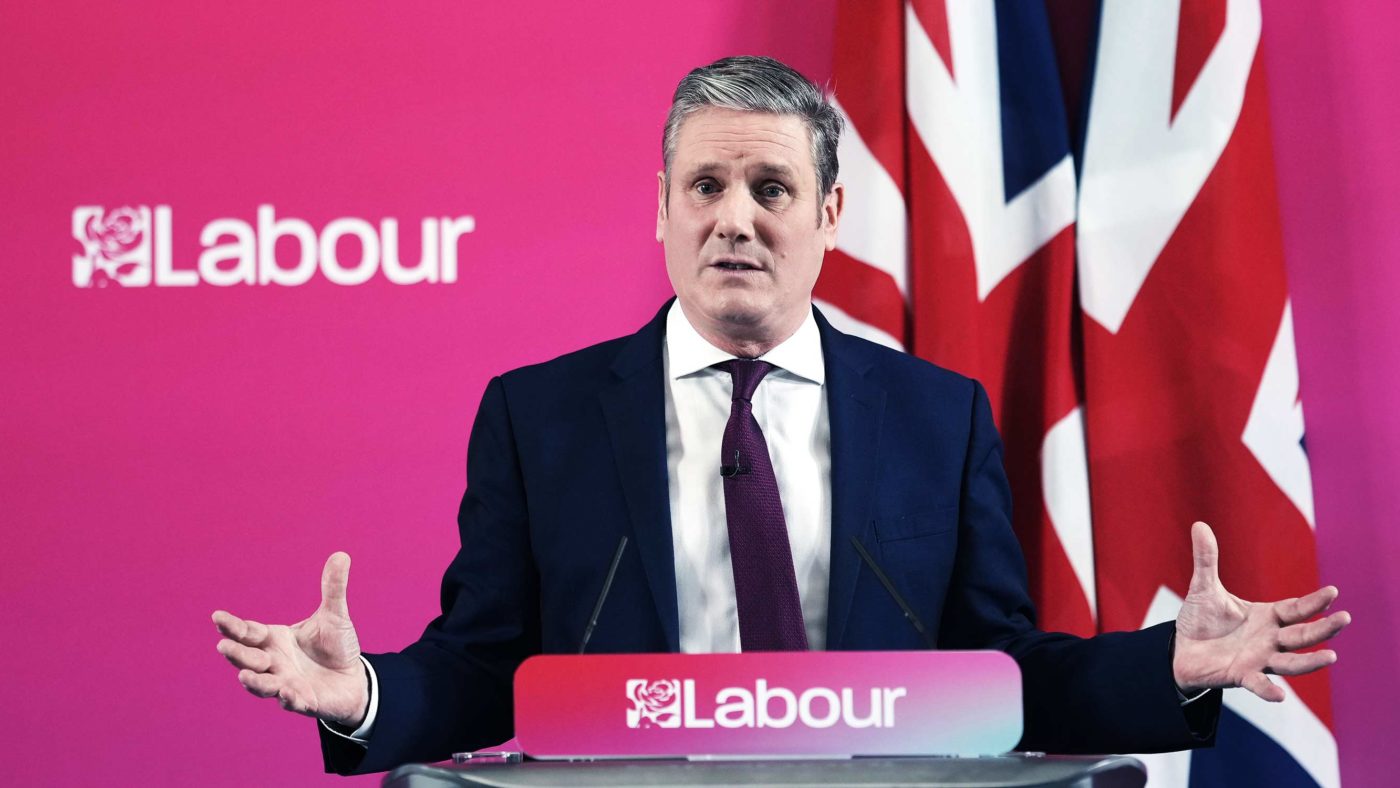Even in the Greek tragedies the Prime Minister so enthusiastically references, it is hard to find many examples of peripeteia as dramatic as his own recent reversal of fate. From dreams of a decades-long hegemony at Conservative party conference, to a winter where at times it has felt his Government might be happy just to secure the next ten days. Whatever else one feels about the so-called ‘partygate’ crisis, make no mistake: there are few historical precedents for this.
Yet this article is not another re-tread of the ups and downs of Boris Johnson’s political fortunes – or at least not directly. For whilst debate in Westminster is long on discussions about how the Conservatives are polling 12 percentage points lower than before the allegations, it is somewhat shorter on accompanying explorations of why Labour might be polling 12 percentage points higher.
The implied SW1 consensus seems to be that these phenomena are one and the same. Moreover, that the only political variable in play is the damage being done to brand Boris and the wider Conservative cause. According to this logic, Labour and its leader Sir Keir Starmer may be handling the crisis well, but the underlying strength of their positive appeal to voters remains unchanged.
No doubt this is a soothing narrative to Tories MPs of a nervous disposition. And, in fairness, it does rest on some fairly robust political assumptions. In our two-party first-past-the-post electoral system, there is a natural zero-sum element to voting patterns and party preference polls do first and foremost measure satisfaction with the Government. Likewise, almost nothing in British politics gets more routinely overestimated than the agency of oppositions to materially affect political events. Opportunism is the name of the game, strategy very hard to execute.
Nevertheless, if I were a Conservative strategist, I would quickly disabuse myself of these meagre crumbs of comfort. Because increasingly it is clear that Labour is not just exploiting the moment to sharpen its hitherto struggling attack operation, but that Starmer also seeks to use it as a vehicle to reconnect his party with a positive account of patriotism.
To some extent, this has been the dominant strategic task of Starmer’s whole leadership, so that fact alone is perhaps unsurprising. But partygate has also granted him access to the magic formula of progressive British patriotism and the Tories should be worried. For if the evidence of the last few weeks is anything to go by, Starmer has no intention of fluffing his lines.
Exhibit A is his dominant performance in Parliament following the publication of the redacted Sue Gray report earlier this week. Whilst much attention focused on his withering attacks on the Prime Minister, by far the most revealing tactic was his argument that the British values of ‘decency and honesty’ were essential to ‘cherishing British democracy’ and thus ‘what it means to be patriotic’. At face value this too is an attempt to draw a sharp distinction between Starmer and his opposite number. But it also creates something of a dividing line with elements of the Labour Party too.
In his magisterial biography of Clement Attlee, Citizen Clem, the historian John Bew describes how as Labour leader Attlee unfailingly executed a ‘country-first, party-second’ strategy. His idea, embodied by Labour’s wartime coalition efforts, was that serving the country and its institutions is the first order political question, advancing socialism very much the second.
For Attlee this was as natural as breathing. His ‘ethical socialism’ was animated less by ideological commitment and more by a sense that socialism was a straightforward expression of British values in action. This gave Attlee a moral certainty and standing with the British people that few Labour leaders have enjoyed since, primarily for the reason that few have believed it.
It is not just the obvious examples either – nor is this only a story about left-wing leaders like Jeremy Corbyn almost revelling in the notion that progressive ends and British values are incompatible. Even Labour’s moderate politicians don’t seem to notice the many and subtle ways they also imply a tension between the two. Rest assured though: the public do. When they hear Labour politicians talk about ‘Labour values’ or ‘Labour communities’; when they see the party preen itself up and talk about its distinctive ‘moral mission’, what comes across is a rectitude that seems to set the Labour Party almost above Britain. Party-first, country-second.
This is what Starmer got so right in his statement. It is not just that he aligned his political ends with the British peoples’ sentiment, he also credibly argued that those ends were subordinate to a higher duty towards upholding British – not Labour or progressive – values. It was a quintessential Attlee argument and it was also right. This is the essence of what it means to be patriotic. No matter what else the Government does to extricate itself from its current paralysis, if it emerges to find a Labour Party and leader that finally understands this, it is in all manner of political trouble.
Click here to subscribe to our daily briefing – the best pieces from CapX and across the web.
CapX depends on the generosity of its readers. If you value what we do, please consider making a donation.


